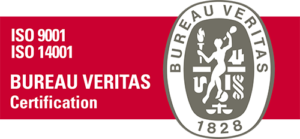To reach the objectives of environmental protection with utmost efficiency and at lower costs for Operators and Society, Ecopneus has embarked on a journey based on ethics, transparencyand utmost rigour in resource management. These principles are reminded in the document “Policy for Quality and the Environment”. This is a strategic tool prepared and implemented according to the international Standards ISO14001 and ISO9001. Ecopneus possesses both of these international Standards. This document has been adopted by all Company’s Members of Staff. Moreover, it has been shared with EP’s Partners and divulged to all chain Operators.
Ecopneus’ Policy for Quality and the Environment
The art 228 of the Decree Law 152/2006 awards the responsibility of the management of end-of-life Tyres (ELTs) to tyre manufacturers and importers.
These have the faculty of setting up ad hoc companies entrusted with all legal obligations, as specified in Ministerial Decree DM 82/2011, issued by the Ministry of the Environment and the Protection of the Territory and the Sea.
Upon constitution, the founding Partners have entrusted Ecopneus with the mission of
Complying with all obligations deriving from the “Producer’s responsibility” and minimizing the overall system costs, on behalf of the Partners:
- guaranteeing the compliance with all Legislation in force and the reaching of the legal objectives;
- sustaining the consolidation and development of chain Operators;
- promoting the consolidation and development of ELT applications and uses and of ELT-derived materials, in ever more environmentally correct solutions;
- assuring the stability of future results, through constant innovation and update of the management of the overall system;
- monitoring all activities and reporting them to the involved and authorised Subjects.
 In the name and on behalf of its Partners, Ecopneus interprets such responsibility considering the maximum respect of ethics,transparency andefficiencyas the founding values of its Operators.Its aim is to be extremely stringent in the management of the resources put at the disposal of the citizens and to reach sustainability objectives for the Country. The adoption of the Quality and Environment Integrated Management System falls within this framework. This system is prepared and implemented according to the international Standards ISO 14001 andISO 9001.
In the name and on behalf of its Partners, Ecopneus interprets such responsibility considering the maximum respect of ethics,transparency andefficiencyas the founding values of its Operators.Its aim is to be extremely stringent in the management of the resources put at the disposal of the citizens and to reach sustainability objectives for the Country. The adoption of the Quality and Environment Integrated Management System falls within this framework. This system is prepared and implemented according to the international Standards ISO 14001 andISO 9001.
Such strategic choice confirms and consolidates the establishment of the following basic objectives:
- acting in accordance with the applicable Law, Rules and Regulations, bearing particular attention to the constant update of legal requirements and of any other type of requirements with reference to environmental issues;
- confronting with the context of reference, understanding its Stakeholders, listening to their requests and sharing common interests;
- constantly committing to the respect of ethical principles and transparently reporting all activities to the interested Subjects;
- identifying and analysing risks and opportunities connected with process management, identifying all necessary actions to face and reduce their undesired effects;
- achieve constant improving of its performance, within the scope of an effective and efficient service, also with the aim of satisfying the interested Parties’ expectations and the reduction of direct and indirect environmental impacts;
- spread environmental awareness among citizens, promoting regular tyre buying. This leads to the channelling of ELTs into the correct management system.
Ecopneus assures that the principles contained in this document are understood, implemented and retained by all its Members of Staff by the means of training, information and update. They are also to be shared with its Partners and divulged among the Operators of the ELT collection and recovery chain.
With the implementation and keeping of the Integrated Management System, Ecopneus possesses a new strategic tool for the consolidation of the following objectives:
- annually intercepting, collecting and recovering ELTs on all national territory for an amount equal at least to the amount put on the market by the Partners during the previous year;
- actuating the principle of proximity for the operative and managerial optimisation of the activities and the limitation of the associated environmental impact;
- sending the maximum amount possible of ELTs to material recovery as opposed to energy recovery;
- preventing situations that may cause damage to health and the environment;
- promoting activities of communication, information and awareness raising towards Public Administration, Citizens and Companies with the objective of supporting the consolidation of a culture of legality and sustainability in ELT management;
- promoting the consolidation and development of applications and of the recycled rubber markets, towards solutions likely to deliver the most benefits to Society;
- monitoring and controlling the environmental aspects connected to activities and processes carried out directly and/or by the means of third-party companies.
The General Management is directly involved in the implementation of these commitments and periodically verifies their level of comprehension and implementation.

 Collect ELT
Collect ELT